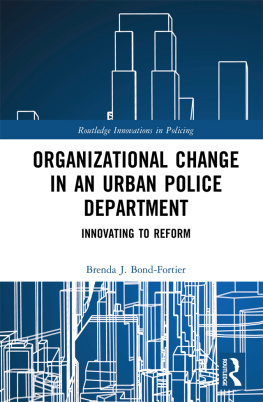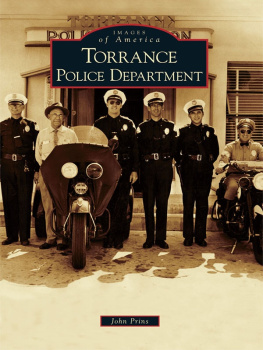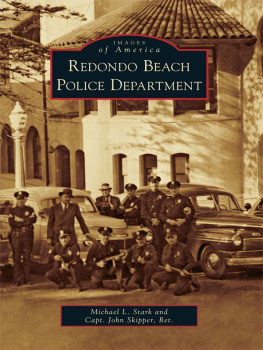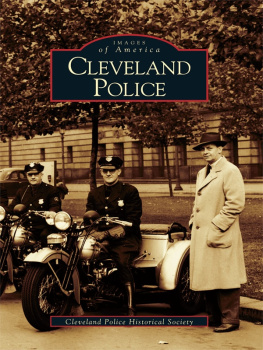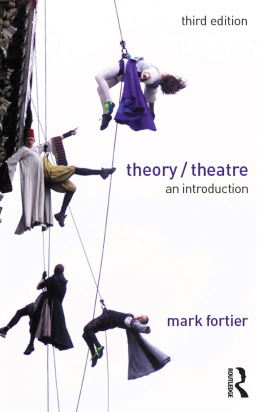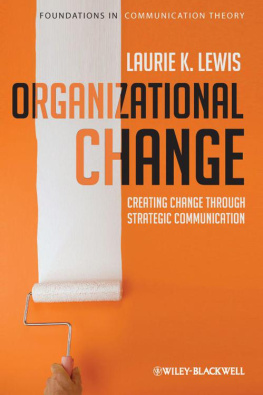Organizational Change in an Urban Police Department
This in-depth case study of a mid-sized police department captures the dynamics, struggles, and successes of police change, revealing the positive organizational and community outcomes that resulted from a persistent drive to reinvent public safety and community relationships. The police profession in the United States faces a legitimacy problem. It is critical that police are prepared to change constantly, be adaptive, and adopt openness to self-reflection and external comparison, moving beyond their comfort zone to overcome the inevitable cultural, structural, and political obstacles. Using previously unpublished longitudinal data examining a 25-year period, Bond-Fortier offers a rich account of the complexity of police management and change within one particular mid-sized city: Lowell, Massachusetts.
The multidisciplinary lens applied provides crucial insights into how and why police organizations respond to a changing environment, set certain goals, and make decisions about how to achieve those goals. The book analyzes the community and organizational forces that stimulated change in the Lowell Police Department, describes the changes that enabled the department to achieve national model status, and builds a nexus between influencing forces, interdisciplinary theory, and the creation of an adaptive 21st-century police organization.
Organizational Change in an Urban Police Department: Innovating to Reform is essential reading for academics and students in criminal justice, criminology, organizational studies, public administration, sociology, political science, and public policy programs, as well as government executives, crime policy analysts, and public- and private-sector managers and leaders engaged in professional development and leadership courses.
Brenda J. Bond-Fortier, PhD is Associate Professor of Public Administration in the Institute for Public Service at Suffolk University. Trained in criminology, community social psychology, and social policy, she specializes in research on organizational change in criminal justice, systematic and collaborative approaches to organizational and community challenges, and the development, implementation, and evaluation of public safety policies and practices. She has conducted research across the United States, published her work in prestigious journals, and been cited in major media outlets. Bond-Fortier is a nationally respected and recognized policing scholar who is valued by practitioners and policymakers for her participation and contributions to police practice. She serves as a Subject Matter Expert for the US Department of Justices Bureau of Justice Assistance Strategies for Policing Innovation initiative, and is a Senior Research Fellow for the National Police Foundation. Bond-Fortier previously worked as a practitioner, serving as strategic development and resource advisor for the North Eastern Massachusetts Law Enforcement Council (NEMLEC) and the Director of Research and Development for the Lowell Police Department. Dr. Bond-Fortier received her PhD in Social Policy from the Heller School at Brandeis University.
Routledge Innovations in Policing
Edited by Ellen Boyne
This series explores innovations in the field of policing and offers the latest insight into the field through research, theoretical applications, case studies, and evaluations. Famous innovations developed over the course of the late twentieth century and into the turn of the twenty-first include approaches such as community policing, broken windows policing, problem-oriented policing, pulling levers policing, third-party policing, hot spots policing, CompStat, and evidence-based policing. Some of these approaches have been successful, and some have not, while new innovations continue to arise. Improving police performance through innovation is often not straightforward. Police departments are highly resistant to change, but through such research we expect to find further refinement of our knowledge of what works in policing, under what circumstances particular strategies may work, and why these strategies are effective in improving police performance.
United Nations International Police Officers in Peacekeeping Missions
A Phenomenological Exploration of Complex Acculturation Michael R. Sanchez
Ends and Means in Policing
John Kleinig
Stress Inside Police Departments
How the Organization Creates Stress and Performance Problems in Police Officers Jon M. Shane
Organizational Change in an Urban Police Department
Innovating to Reform Brenda J. Bond-Fortier
For more information about this series, please visit: www.routledge.com/Routledge-Innovations-in-Policing/book-series/RIP
Organizational Change in an Urban Police Department
Innovating to Reform
Brenda J. Bond-Fortier
First published 2020
by Routledge
52 Vanderbilt Avenue, New York, NY 10017
and by Routledge
2 Park Square, Milton Park, Abingdon, Oxon, OX14 4RN
Routledge is an imprint of the Taylor & Francis Group, an informa business
2020 Taylor & Francis
The right of Brenda J. Bond-Fortier to be identified as author of this work has been asserted by her in accordance with sections 77 and 78 of the Copyright, Designs and Patents Act 1988.
All rights reserved. No part of this book may be reprinted or reproduced or utilised in any form or by any electronic, mechanical, or other means, now known or hereafter invented, including photocopying and recording, or in any information storage or retrieval system, without permission in writing from the publishers.
Trademark notice: Product or corporate names may be trademarks or registered trademarks, and are used only for identification and explanation without intent to infringe.
Library of Congress Cataloging-in-Publication Data
A catalog record for this book has been requested
ISBN: 978-1-138-19020-7 (hbk)
ISBN: 978-1-315-64122-5 (ebk)
Typeset in Bembo
by Apex CoVantage, LLC
This book has taken more than a couple of years to write, and its story results from over 25 years of work and lived experiences. I start by thanking members of the Lowell, Massachusetts Police Department (LPD) and the Lowell community for all of their work to create and sustain a safe community. It is a daunting job, and you deserve more recognition than you receive. I hope that I have done well in my attempt to showcase this good work.
Thank you to the individuals interviewed for this study. There were dozens of you who gave up your time, your opinions, and your ideas to help tell the story in a way that will reveal Lowells experience, but also inform how other communities and police agencies improve community safety and their policing services. I tried to include as many thoughts and reflections as possible, but know that your insights helped to formulate so much of the writing. Thank you.
My ability to tell this story, which is grounded in part by my own lived experience at the LPD, would not have been possible if not for the determination of a few friends in particular: Ed Davis, Christine Cole, Pat Cook, Mark Trudel, Jill Theriault, Martha Demaio, Bob Demoura, Mark Buckley, Kelly Richardson, Ken Lavallee, and Bill Taylor. We worked hard, but what a time we had!


